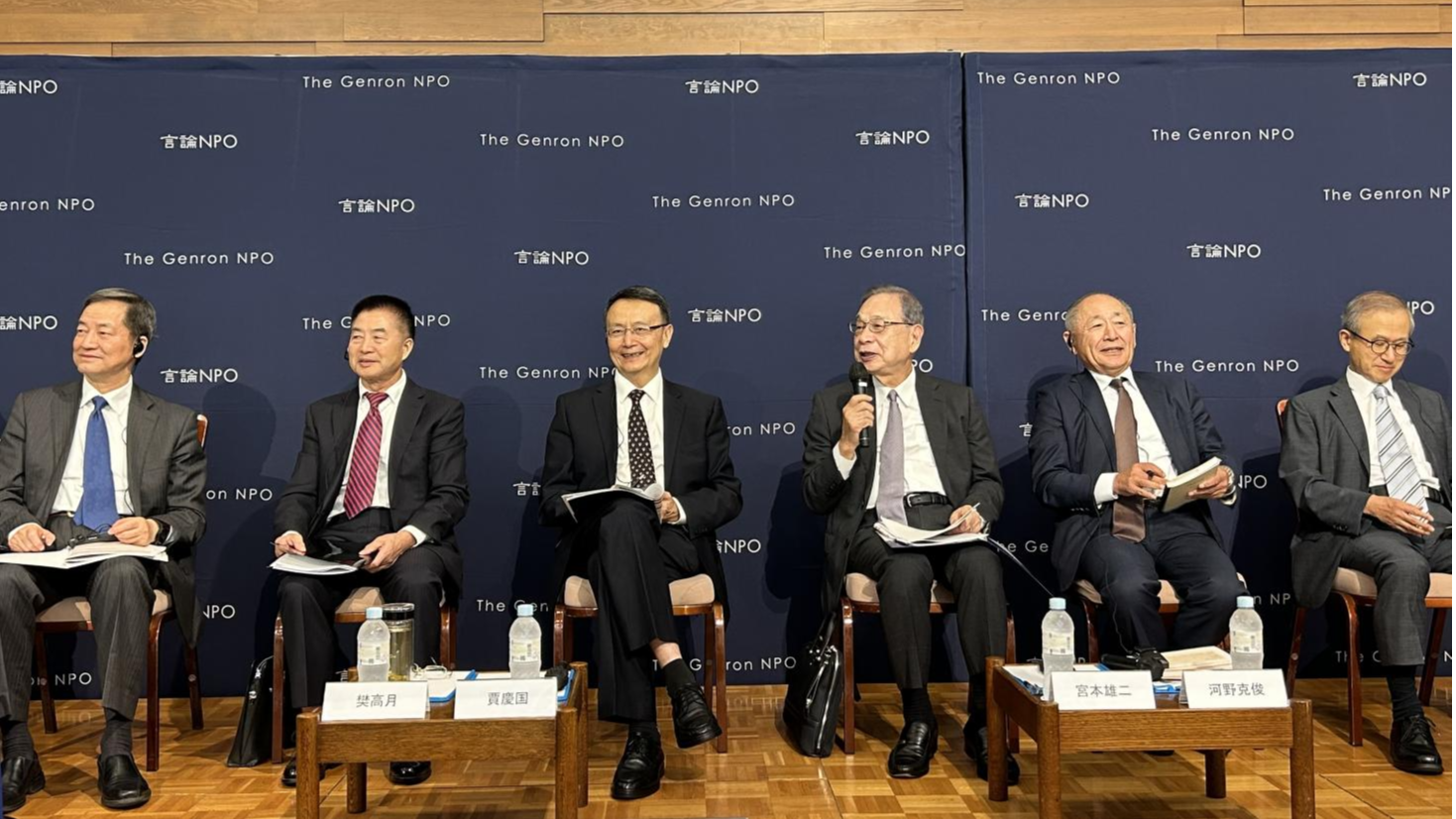
Experts from the United States, China, Japan, and the Republic of Korea mostly agreed that a new Cold War in Northeast Asia can be avoided, though there is such a risk, as they discussed peacebuilding at a conference in Tokyo.
The Asia Peace Conference 2024, which closed in Tokyo on Sept 4, aimed to explore what kind of efforts are needed to ensure peace in Northeast Asia, said Yasushi Kudo, president of the Genron NPO, the host organization of the conference.
Daniel Russel, former US assistant secretary of state for East Asian and Pacific Affairs, said people should be careful about labeling the current situation as a “Cold War” because it “creates a mindset that could drive policies and would actually escalate risk.”
READ MORE: Xi warns SCO members of real threat from Cold War mentality
There is substantial difference nowadays from the Soviet-era Cold War situation, given the economic interdependence and the lack of Cold War-style proxy wars supported by the United States and China. In addition, international and regional frameworks have been established, and technology has really changed the game, Russel noted.
“Projecting the Cold War framework onto today’s geopolitical landscape clouds our vision and can create self-fulfilling prophecies. So I think it’s a mistake to think in Cold War terms but at the same time, there’s a lot we can learn from the Cold War,” he said, holding the belief that the lessons from that period can help people avoid conflicts and manage tensions.
“Adaptation of Cold War policies, not replication of Cold War policies, can be helpful in preventing a new Cold War and promoting a more secure and cooperative region,” he said.
Ouyang Wei, deputy director of the Academic Committee at Grandview Institution, said: “Following the old way of thinking is not good for the current situation. We should avoid using the definition to shape the new Cold War. It’s very dangerous to shape two blocs (that) confront (each other) in Northeast Asia.”
Ouyang, a retired professor at the PLA National Defense University, warned that maybe someone wants to use this concept to shape the two blocs, which is not good for the world.
A new Cold War could only benefit a few countries but would make most countries suffer, said Fan Gaoyue, retired senior colonel and former chief specialist at the PLA Academy of Military Science.
He emphasized that globalization has rendered all countries dependent on each other economically to a certain extent. Their economic interests are mutually interconnected, which makes it difficult for them to pick sides.
“A new Cold War in Northeast Asia can be avoided, though there is such a risk,” said Fan, who is now a guest professor at Sichuan University.
To avert a new Cold War, Northeast Asian countries should try what they can to defuse hostilities through dialogues and military exchanges, deepen mutual understanding and trust-building through people-to-people exchanges, and prevent crises and friction from escalating into conflicts and confrontation, through communication channels, he said.
Jia Qingguo, a professor and former dean of the School of International Studies at Peking University, pointed out that the Cold War between the US and the Soviet Union had three characteristics — ideological competition, military confrontation on a global basis, and economic separation.
“Judging by those three criteria, we are not quite at a Cold War yet, but we are moving in that direction because for all kinds of reasons, people on both sides are thinking in terms of a worst-case scenario approach,” said Jia.
It means that each side plans for the worst possible situations and takes measures in that direction, and that prompts the other side to do the same. That is driving the relationship from bad to worse, he explained.
“We need to change this worst-case scenario approach. We need to give the benefit of doubt to the other side,” said Jia.
Besides, other countries also have a role to shape the relationship. Probably, they need to make sure that they do not take sides to fuel the conflict, he said.
“Of course, you have alliances, you have partners, but then you should take positions on the basis of the merit of the fact of each case, rather than just take a blind, one-sided approach,” said Jia.
“For example, on how to deal with certain issues, I think they should try to discourage either side — China or the US — from taking more extreme actions. Everybody has a role to play to prevent the two countries from getting into a Cold War.”
Christopher Johnstone, senior adviser and Japan chair at the Center for Strategic and International Studies, said the reality of economic interdependence is such that the US is not going to decouple from China, and the US has no ability to ask its close allies to decouple, either.
“We are not in a new Cold War. It’s not a bipolar system,” said Johnstone.
READ MORE: Possible new Cold War is likely to go far beyond routine inflammatory rhetoric
Nowadays people live in a world where small players can have remarkable power in the international system. This is not a bipolar world that is emerging, he added.
“Where we are really heading for is a world of competing coalitions and shifting coalitions of countries that align on issues and move apart on other issues.”
Countries do not have to choose which camp they live in, but have to choose which rules they want to live under, and to choose whether to cooperate in upholding those rules, Johnstone said.
Contact the writer at jiangxueqing@chinadaily.com.cn


